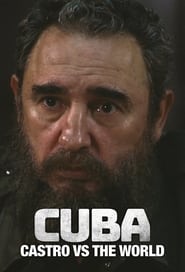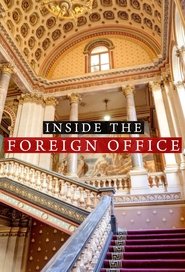Bbc Two TV Series - Page 94
-
The Man Who Broke Britain
0000
The Man Who Broke Britain is a 2004 BBC Television docudrama about a financial collapse triggered by a devastating terrorist strike. -
Eòrpa
0000
Eòrpa
0000
Eòrpa is long-running current affairs programme broadcast on BBC Two Scotland and BBC Alba. The series has been running since 1993, and has covered political and social issues affecting Europe and Europeans over that time including issues affecting the Western Isles. It is broadcast weekly in Scottish Gaelic with English subtitles. The programme has also been credited with awards, including Scottish BAFTAs. It is funded by the Gaelic Media Service and produced by BBC Gàidhlig. Eòrpa is shown on BBC Alba on Wednesday at 20:30 and on BBC Two Scotland on Thursdays 19:30. -
Mastercrafts
2010
star 8.5Monty Don, a huge fan of traditional crafts, presents Mastercrafts, the programme which celebrates six of the traditional crafts that built our nation and its heritage -
Oil Storm
0000
Oil Storm
0000
Oil Storm is a 2005 television docudrama portraying a future oil-shortage crisis in the United States, precipitated by a hurricane destroying key parts of the United States' oil infrastructure. The program was an attempt to depict what would happen if the highly oil-dependent country was suddenly faced with gasoline costing upwards of $7 to $8 per gallon. Directed by James Erskine and written by Erskine and Caroline Levy, it originally aired on FX Networks on 5 June 2005, at 8 p.m. ET. The crisis arises from a hurricane destroying an important pipeline at Port Fourchon in Louisiana, a tanker collision closing a busy port, terrorist attacks and tension with Saudi Arabia over the oil trade, and other fictional events. The program followed the lives of several people - the owners of a mom-and-pop convenience store, a paramedic, stock market and oil analysts, government officials, and others - and includes a substantial amount of human drama. -
Cuba: Castro vs. the World
2020
The story of how Cuba struggled in the wake of the collapse of the Soviet Union, their main economic and political supporter. The massive decline in living standards triggered refugee crises, which played havoc with Cuba's already difficult relations with the US and forced the two enemies to negotiate for the first time one-on-one and officially. -
Building Cars: Secrets of the Assembly Line
2019
Broadcasting from one of Britain's biggest car factories, James May, Kate Humble and Ant Anstead reveal the science, engineering and people that keep us all on the road. -
Doctors to Be
0000
Doctors to Be
0000
Doctors to Be is a biographical documentary series that was first broadcast on BBC Two by BBC Television and is also the name of a book, published by BBC Books, that accompanies the series. The television series follows 10 medical students who enrolled at St Mary's Hospital Medical School in the 1985 intake of students. It starts in 1984 with their admission interviews, then follows them through five or six years as medical students, and ends with their first experiences of working as busy junior hospital doctors in the National Health Service. The BBC decided to make the series in 1983 and the BBC contacted several medical schools. The BBC selected St Mary's Hospital Medical School, London, England, partly because the Dean, Prof Peter Richards, was enthusiastic about filming and thought that medical education was of public interest. Filming began in November 1984 when applicants were applying for university and going to interviews for the 1985 intake at St Mary's Hospital Medical School. St Mary's Medical School -
The Sunday Show
0000
star 8The Sunday Show is a British television entertainment programme that was broadcast live on Sunday lunchtimes on BBC Two between 1995 and 1997. Four series of the show were produced. Donna McPhail and Katie Puckrik hosted the first two series, Puckrik was replaced by Paul Tonkinson for the third series. For the fourth, Tonkinson hosted with Jenny Ross, previously the show's soap opera reviewer. The show is best remembered for giving breaks to two young comedians who went on to greater success: Paul Kaye, who appeared each week in his Dennis Pennis character, attending premieres and other events, and throwing absurd questions at the gathered celebrities; and Peter Kay who presented a regular "World of Entertainment" slot ostensibly reviewing TV and film but in practice simply a vehicle for his stand-up comedy act. Other regular contributors included Kevin Eldon in different guises, including 'Guy Boudelaire' & 'Dr Brebner', and Happy Mondays' dancer/mascot/percussionist Bez in a weekly "Science With Bez" slot. -
Arrange Me a Marriage
0000
Using Asian culture's own built-in introduction service - friends and family - Glaswegian businesswoman Aneela aims to help 39-year-old Helen Dunn find a partner for life. -
Drugland
2004
Drugland
2004
The business is providing Class A drugs to hundreds of thousands - perhaps millions - of users every week. For the first time on British television, drug dealers describe in detail the tricks of their trade; their profits, the risks and the reasons why they deal. -
Animal Battlefield
2005
Animal Battlefield
2005
-
Brain Doctors
2013
Brain Doctors
2013
Watch extremely skilled surgeons working at the frontiers of their medical expertise and knowledge to repair the human brain. -
Inside the Foreign Office
2018
star 8Over a compelling and turbulent year, film-maker Michael Waldman gains privileged access to the strange, secretive and fascinating world of British diplomats. -
Country Strife: Abz on the Farm
2015
Ex-boyband rapper Abz Love and his girlfriend Vicky Fallon want to leave their city life and buy a smallholding in Wales. But with little money and farming experience, will they achieve their dream? -
Show Me the Monet
0000
Show Me the Monet
0000
Show Me the Monet is a British television series first aired on BBC2 in May 2011. It is presented by Chris Hollins. The programme has been described as the "artworld's version of The X Factor and Dragons's Den". -
Bring Your Husband To Heel
0000
Bring Your Husband To Heel was a "hidden camera" documentary series produced by Talkback Thames and shown on BBC Two in 2005. The show featured a professional dog trainer, Annie Clayton, teaching women to use dog training techniques to improve the behaviour of their husbands. The men participating in the programme were told that they were actually taking part in a show about relationship roles. The BBC received a large number of complaints about the show, with some claiming the show was "sexist, offensive and degrading", "grossly insulting", and "insulting to men and insulting the intelligence of women". The BBC claimed the series "plays on the long-standing stereotype of wives nagging husbands about their failings". Ofcom later ruled that the show was not sexist: "It was clear from the context that the programme was not seriously proposing a demeaning view of men." In the Evening Standard, the TV critic Victor Lewis-Smith described the programme as "brainless dross", criticized the BBC for commissioning the ser -
The British at Work
2011
-
Muslim Driving School
2010
Muslim Driving School is a documentary series which follows some Muslim women as they learn how to drive. -
The British Family
2010
The British Family
2010
Kirsty Young presents a history of how British families have changed since the Second World War.







